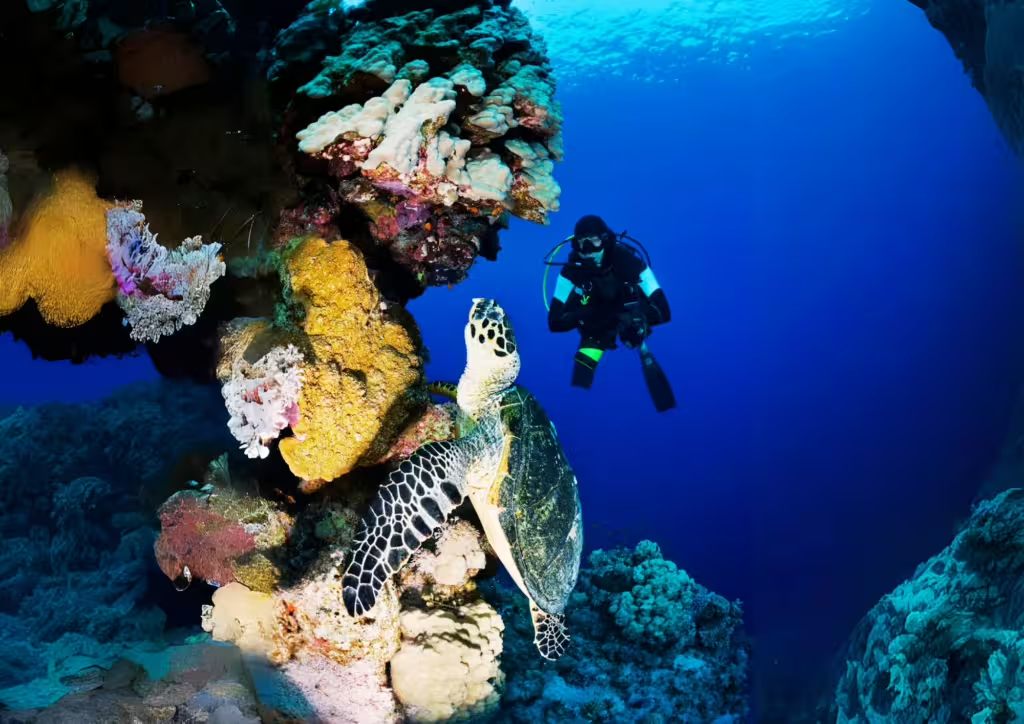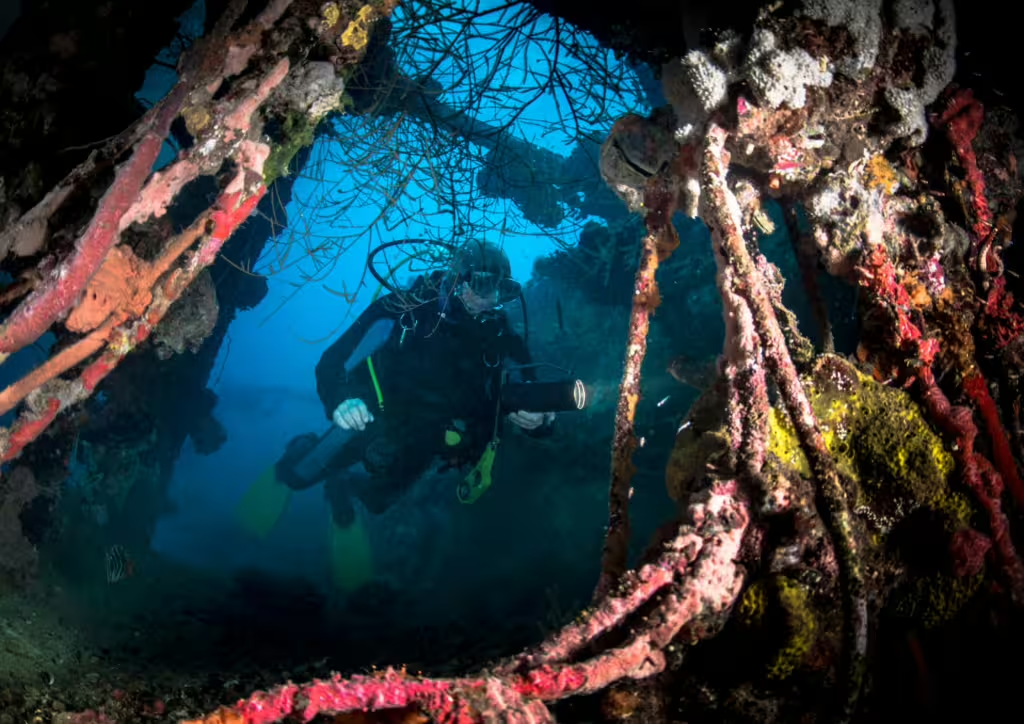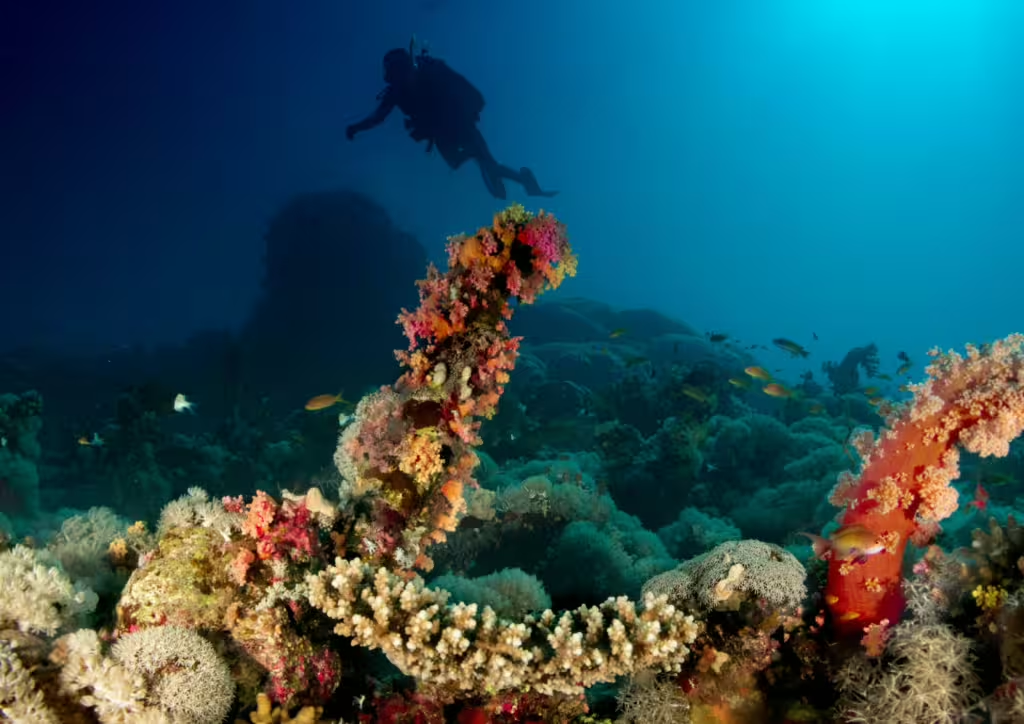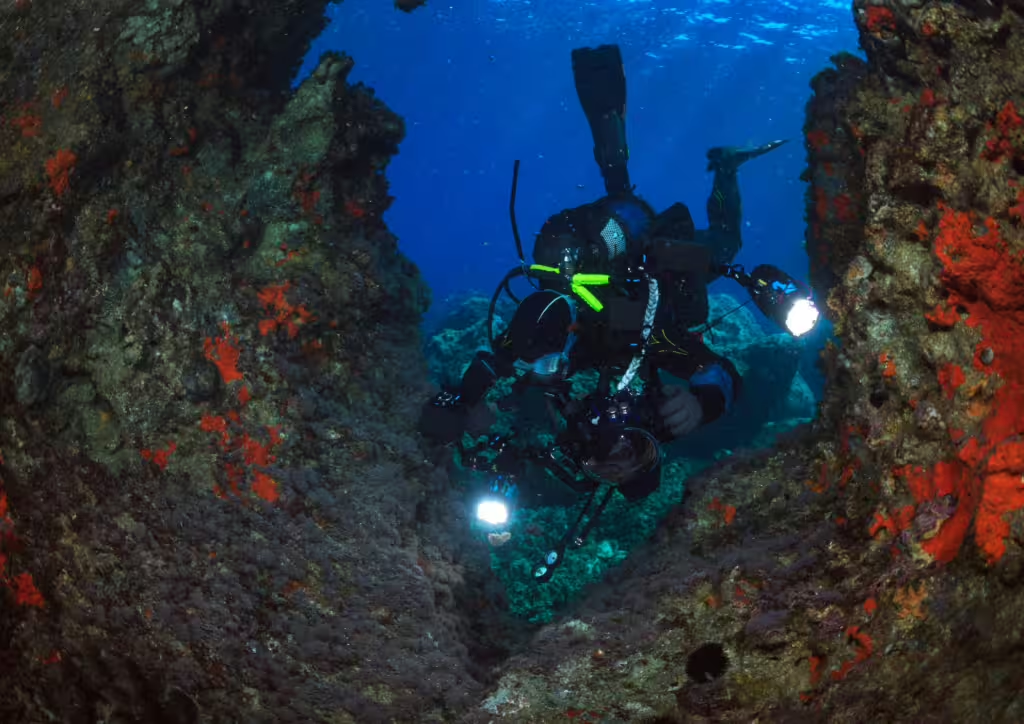The SSI Scuba Course in Bali offers an unparalleled opportunity to explore vibrant marine life and stunning underwater landscapes, all while gaining essential diving skills. Whether you’re a complete beginner or looking to enhance your diving credentials, this step-by-step guide will walk you through everything you need to know to successfully complete your SSI course. From the initial orientation to your first dive, get ready to dive into an aquatic adventure that you’ll cherish for a lifetime.
Understanding the SSI Scuba Course Structure
The SSI Scuba Course in Bali is structured to provide divers with a comprehensive understanding of both the theoretical and practical aspects of scuba diving. When you join an SSI Scuba Course in Bali, you’ll begin with classroom sessions covering dive theory, equipment use, safety procedures, and environmental awareness.
These foundational lessons are followed by confined water training, where students can safely practice essential skills under the supervision of experienced instructors. The SSI Scuba Course in Bali then transitions into open water dives at real dive sites, giving students a chance to apply their knowledge while exploring Bali’s stunning underwater world.
Each open water dive within the SSI Scuba Course in Bali reinforces techniques and builds confidence through hands-on experience with marine life. By the end of the program, participants who complete the SSI Scuba Course in Bali not only earn their certification but also leave with unforgettable memories and a deep appreciation for the ocean.
Choosing the Right SSI Dive School in Bali

When it comes to embarking on your SSI Scuba Course in Bali, the first crucial step is choosing the right dive school. The SSI Scuba Course in Bali is offered by many dive centers across the island, each with its own strengths, specialties, and reviews—so doing thorough research is essential. Make sure to choose a dive school that is officially SSI-affiliated, as this guarantees adherence to international safety and training standards.
Before committing, consider factors like instructor language proficiency, equipment quality, and the overall learning environment. Reaching out directly to ask questions is a great way to gauge responsiveness and support. Visiting the dive school in person, if possible, will help you feel the vibe and assess the facilities firsthand.
Selecting the right center plays a major role in your success and enjoyment during the SSI Scuba Course in Bali. With the right match, your SSI Scuba Course in Bali will be a safe, inspiring, and unforgettable adventure—one that not only certifies you but also deepens your passion for the underwater world. Whether you’re looking for professional guidance or a personal journey, the SSI Scuba Course in Bali offers the perfect starting point.
Preparing for Your SSI Scuba Course: Essential Gear and Tips
Preparing for your SSI Scuba Course in Bali involves both mental and physical readiness, as well as the right gear to ensure a safe and enjoyable diving experience. Before you embark on your underwater adventure, familiarize yourself with essential equipment, which typically includes a wet suit, fins, mask, snorkel, and scuba tank. While many dive shops in Bali provide rental equipment, it’s often beneficial to invest in your own gear for comfort, fit, and hygiene.
Additionally, make sure to check your equipment ahead of time and consult with your diving instructor about any specific requirements for the course. This preparation sets the foundation for a successful dive experience while ensuring compliance with safety protocols. In addition to gear, consider physical conditioning and mental preparation. A basic level of fitness will significantly enhance your diving capabilities, so engaging in regular exercise can help.
Moreover, familiarize yourself with the course structure, and study the materials provided in advance. This knowledge will not only boost your confidence but also enhance your understanding of essential scuba concepts. Remember to stay hydrated, get plenty of rest before your first dive, and maintain a positive attitude as you prepare to explore Bali’s stunning underwater world. Dive deep, and get ready for an unforgettable experience in paradise!
Safety Protocols and Best Practices for New Divers

Safety is paramount when embarking on your SSI Scuba Course in Bali. As a new diver, it’s essential to familiarize yourself with basic safety protocols to ensure a secure and enjoyable diving experience. Always begin by conducting a thorough pre-dive safety check with your dive buddy, ensuring all equipment is functioning correctly.
Additionally, understanding and adhering to the principles of buoyancy and equalization will be critical during your underwater excursions. It’s important to keep an eye on your air supply and monitor your surroundings, as well as staying aware of the dive plan outlined by your instructor.
Practicing these safety steps will help build your confidence and enhance your skills as a diver. In addition to the essential pre-dive checks, new divers should prioritize maintaining effective communication underwater. Hand signals and dive computers play a vital role in keeping you and your buddy informed and safe.
It’s also wise to remain within the established depth limits set during your SSI Scuba Course in Bali. These guidelines are designed to prevent overexertion and ensure a relaxed dive experience. Always listen to your instructor and adhere to the dive schedule to avoid unnecessary risks. By embracing these safety protocols and best practices, you’ll not only protect yourself but also enrich your underwater adventures in Bali.
Theoretical Learning: What to Expect in Class
Furthermore, the theoretical classes are often supplemented with quizzes and assessments to gauge student comprehension and retention of the material. This structured approach not only prepares students for the practical diving sessions that follow but also builds their confidence as they prepare to explore the underwater wonders of Bali.
Expect to complete readings from the SSI manuals, watch informative videos, and engage in group activities that underscore the importance of safety protocols and environmental conservation. This immersive educational experience will equip you with the knowledge needed to dive safely and responsibly, setting the stage for the unforgettable adventures that await beneath the waves.
Confined Water Training: Your First Steps Underwater
Confined water training is an essential component of the SSI Scuba Course in Bali, serving as your first real introduction to the underwater world. During this stage, you’ll become familiar with the equipment and develop basic scuba skills in a controlled environment, typically in a swimming pool or a calm lagoon. This setting allows you to practice essential skills, such as buoyancy control, regulator recovery, and mask clearing, all while under the close supervision of a certified instructor.
The goal here is to build your confidence and comfort level before you venture into open water. Each skill is taught progressively, ensuring you grasp each concept before moving on to the next, making this training both thorough and engaging. Once you’ve mastered the necessary skills in confined water, you’ll be ready to take the next thrilling step in your SSI Scuba Course in Bali: exploring the vibrant marine life in open water.
Your instructor will guide you through a series of shallow dives that reinforce what you’ve learned while exposing you to the breathtaking underwater ecosystem that Bali has to offer. Watching schools of colorful fish and stunning coral formations come to life around you is an unforgettable experience that solidifies your training. Embrace the adventure that awaits beneath the waves as you transition from the pool to the open ocean!
Open Water Dives: Gaining Real Experience in Bali’s Aquatic Paradise
The open water dives are crucial for any prospective diver as they offer real-life experience in Bali’s stunning underwater landscapes. During the SSI Scuba Course in Bali, you will get hands-on training in the ocean, where you’ll apply the skills you’ve learned in confined water sessions. These dives are typically conducted in serene locations with vibrant marine life, allowing you to not only perfect your diving techniques but also immerse yourself in the breathtaking beauty of the underwater world.
The experienced instructors will guide you through every step, ensuring you feel comfortable and safe as you navigate through colorful coral reefs and potentially encounter fascinating sea creatures. Completing your open water dives not only builds your confidence as a diver but also solidifies your understanding of the essential safety protocols.
In Bali’s warm waters, with visibility often exceeding 30 meters, you’ll find the conditions perfect for learning and exploration. Each dive is an opportunity to adapt to different environments while enhancing your skills, making the experience both educational and exhilarating. As you gain insights into proper buoyancy control and underwater navigation, you’ll emerge from Bali’s aquatic paradise not just as a certified diver, but also as a passionate advocate for ocean conservation and exploration.
Post-Course Opportunities: Continuing Your Diving Journey

Completing an SSI Scuba Course in Bali is an exhilarating milestone, but it’s just the beginning of your underwater adventure. After obtaining your certification, the world beneath the waves opens up to countless opportunities. Many divers choose to further their skills by enrolling in advanced courses, such as the Advanced Adventurer program or specialty courses focusing on wreck diving, night diving, and marine ecology.
Bali’s diverse marine environments make it an ideal location for these explorations. Participating in such courses not only enhances your diving skills but also helps you build a deeper understanding of marine life and conservation efforts, making your dives more meaningful. Additionally, you might want to consider joining a local dive club or community.
This allows you to connect with fellow diving enthusiasts and participate in group dives, which can introduce you to lesser-known dive sites around Bali. Many clubs also organize regular outings, dive trips to other locations, or conservation efforts, fostering a sense of camaraderie among members.
Engaging with a community can greatly enrich your diving experience and keep the passion alive, making every dive an exciting adventure. By exploring these post-course opportunities, you’ll not only elevate your diving skills but also develop lasting connections that keep you immersed in the underwater world.
Embark on Your Scuba Journey in Bali
Completing an SSI Scuba Course in Bali is not just about learning to dive; it’s about embracing the extraordinary underwater world that this tropical paradise has to offer. With clear instructions and guidance, you can step confidently into the depths of the ocean, explore vibrant coral reefs, and encounter the fascinating marine life that thrives beneath the surface.
Remember to respect the environment and dive responsibly to preserve the beauty you’re experiencing for future generations. As you finish your course, take with you not just certifications and memories but also a newfound appreciation for the ocean.
The skills you have honed will empower you to explore dive sites across the globe, all while creating unforgettable adventures in this breathtaking location. Whether this is just the beginning of your dive journey or a stepping stone to more advanced courses, may your experiences fuel your passion for scuba diving and marine conservation.


The title sounds interesting, but I need to read more before forming an opinion.
I couldn’t find a summary of a blog post to make an informed comment.
Hi Ava, thank you for reaching out to us. It seems we made an error in publishing the blog post without a summary. Can you please give us a moment to correct this? We’d like to invite you to share more about your thoughts or questions once the summary is up. You can contact us at [email protected] or +62 857 3891 8262. We appreciate your feedback.